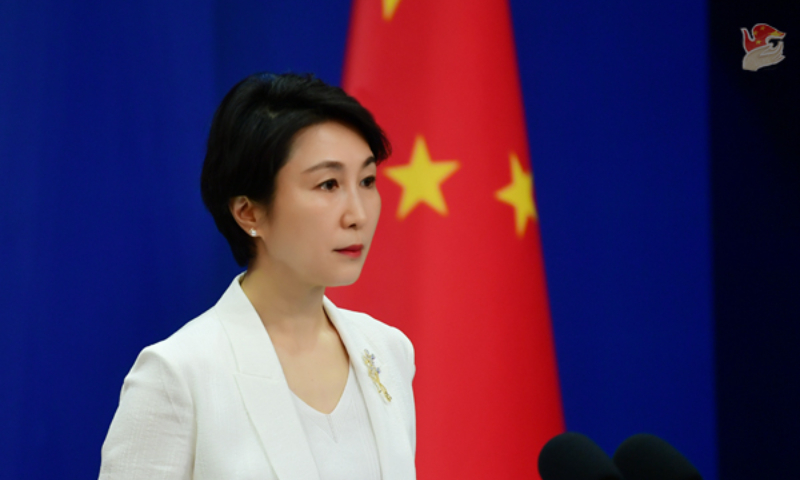
Chinese Foreign Ministry spokesperson Mao Ning Photo: fmprc.gov.cn
In response to a media question on Taiwan regional leader Lai Ching-te’s "Double Ten" speech, Chinese Foreign Ministry spokesperson Mao Ning said at a routine press conference on Thursday that Lai’s speech deliberately sought to sever historical ties between the two sides of the Taiwan Straits, reiterated the rhetoric of "not subordinating to each other" and "insisting on sovereignty," while changing tactics to peddle the fallacy of "Taiwan independence."
This once again exposed Lai’s rigid stance on "Taiwan independence" and exposed his malicious intentions to escalate tensions across the Taiwan Straits for selfish political gain, Mao said.
Mao emphasized that there is only one China in the world, Taiwan is an inalienable part of China’s territory, and the government of the People’s Republic of China is the sole legal government representing the whole of China. No matter what the Lai authorities say or do, it cannot change the undeniable fact that both sides of the Taiwan Straits belong to one and the same China, nor can it hinder the historical trend of China's inevitable reunification, which will ultimately be achieved. Attempts to provoke and seek "independence" will lead to a dead end.
The one-China principle is a basic norm of international relations and a broadly accepted consensus in the international community. Taiwan has never been a country and it can never become one, and its so-called sovereignty does not exist at all, Mao said, noting that adhering to the one-China principle, opposing "Taiwan independence" and rejecting "two Chinas" or "one China, one Taiwan" is China’s consistent position in handling Taiwan's external exchanges and participation in international activities.
Mao reiterated that China firmly opposes any form of official exchanges with Taiwan by countries that have diplomatic relations with China, and resolutely opposes any interference in China's internal affairs by any means or under any pretext.
Mao urged the few foreign politicians who have visited Taiwan to correct their wrong words and actions, stop interfering in China's internal affairs, stop condoning and endorsing "Taiwan independence" and escalating tensions across the Taiwan Straits.
Global Times




